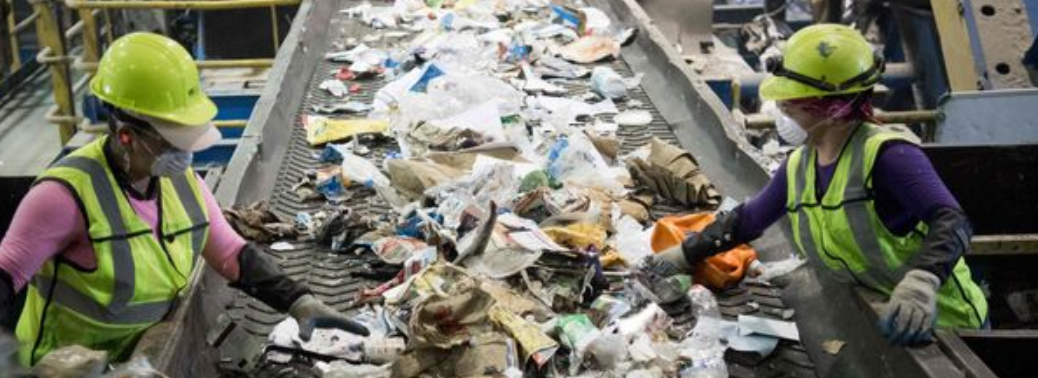NATIONAL FRAMEWORK FOR RECYCLING OF PLASTIC WASTE
21, Sep 2019

Prelims level : Environment- Pollution & Waste Management
Mains level : GS-III- Conservation, Environmental Pollution and Degradation, Environmental Impact Assessment.
Context:
- The National Green Tribunal (NGT) has pulled up the Ministry of Environment, Forest and Climate Change for a three-year delay in drawing up a national framework for recycling of plastic waste by brand owners and plastic producers.
Issue:
- India has a law that requires all companies to recover the plastic they use to package their products.
- The Union Ministry of Environment, Forest and Climate Change notified the Plastic Waste Management (PWM) Rules in March 2016 which mandated extended producer responsibility (EPR) for all plastic producers, importers and brand owners (PIBOs).
- PIBOs did not take concrete steps in 2016-17 to meet their targets under EPR.
- But with the advent of producer responsibility organisations (PROs) in 2018, they have outsourced their EPR targets, which can lead to a new set of problems.
Background:
- The observation comes at a time when the government has launched a campaign against single-use plastic. In December 2018, CPCB constituted a nine-member core group to frame the national framework for implementation of EPR and define the responsibilities of PIBOs, PROs and the government.
Related Issues:
Extended Producers Responsibility (EPR):
- EPR is a practice and policy approach in which producers are made responsible for collecting and processing their manufactured products upon end of their lifetime. Responsibility may be fiscal, physical or a combination of both.
- companies have to specify collection targets as well as a time line for this process within a year of the rules coming into effect.
- The Rules also mandate the responsibilities of local bodies, gram panchayats, waste generators and retailers to manage such waste.
Issue with Extended Producers Responsibility (EPR):
- As per CSE’s publication on Model Framework for Segregation, major changes required in the plastic waste rules are concerning EPR.
- EPR targets have to be accounted for at the national level, irrespective of which state the products are sold or consumed in. The amendment does not address these issues.
- no example of deposit refund scheme system has been implemented in any state.
- The producers have been reluctant in taking the onus of the waste despite various interventions across the country by government and civic societies.
Stats about Plastic Waste:
- Plastic Infrastructure Report, 2017, India consumes close to 12.8 million tonnes of plastic per annum, of which, close to 5 million tonnes is rendered as waste every year.
- 70% of the plastic waste industry is informal in nature and no action plan for formalising the industry has been pushed in the last two years.
Issues with policies on Plastic:
- Good and Service Tax (GST), plastic waste was put under a 5 per cent bracket, hurting the informal sector, which already lacks a concrete action plan.
- The status of plastic waste management in the country is grim even after the rules gave emphasis on banning plastics below 50 microns, phasing out use of multi-layered packaging and introducing extended producer responsibility (EPR) for producers, importers and brand owners to ensure environmentally sound management of plastic products until the end of their lives.
Concept of Producer Responsibility Organisations (PROs):
- A PRO is a third-party organisation that facilitates the responsibility of producers to take back waste from open market, recycle or process, and file compliance.
- With a PRO, producers do not physically take back the product, but instead support the process financially.
Problems with PROs:
- PRO would experience great challenges on the ground due to low level of source segregation
- Success would lie in creating a strong monitoring and reporting structure for both PROs and recyclers.
Conclusion:
- An ideal EPR framework should integrate all.
- PIBOs should work with urban local bodies to manage waste after segregating it into biodegradable, non-biodegradable and domestic hazardous categories.
- They can also contribute to development of infrastructure for EPR implementation, if necessary.
Prelims:
National Green Tribunal:
- The National Green Tribunal is Statutory body, established under the National Green Tribunal Act 2010.
- For effective and expeditious disposal of cases relating to environmental protection and conservation of forests and other natural resources including enforcement of any legal right relating to environment and giving relief and compensation for damages to persons and property and for matters connected therewith or incidental thereto.
- It is a specialized body equipped with the necessary expertise to handle environmental disputes involving multi-disciplinary issues.
- The Tribunal shall not be bound by the procedure laid down under the Code of Civil Procedure, 1908, but shall be guided by principles of natural justice.
Central Pollution Control Board (CPCB):
- The Central Pollution Control Board (CPCB) of India is a statutory organisation under the Ministry of Environment and Forests (MoEF).
- It was established in 1974 under the Water (Prevention and Control of pollution) Act, 1974.
- CPCB is also entrusted with the powers and functions under the Air (Prevention and Control of Pollution) Act, 1981.






